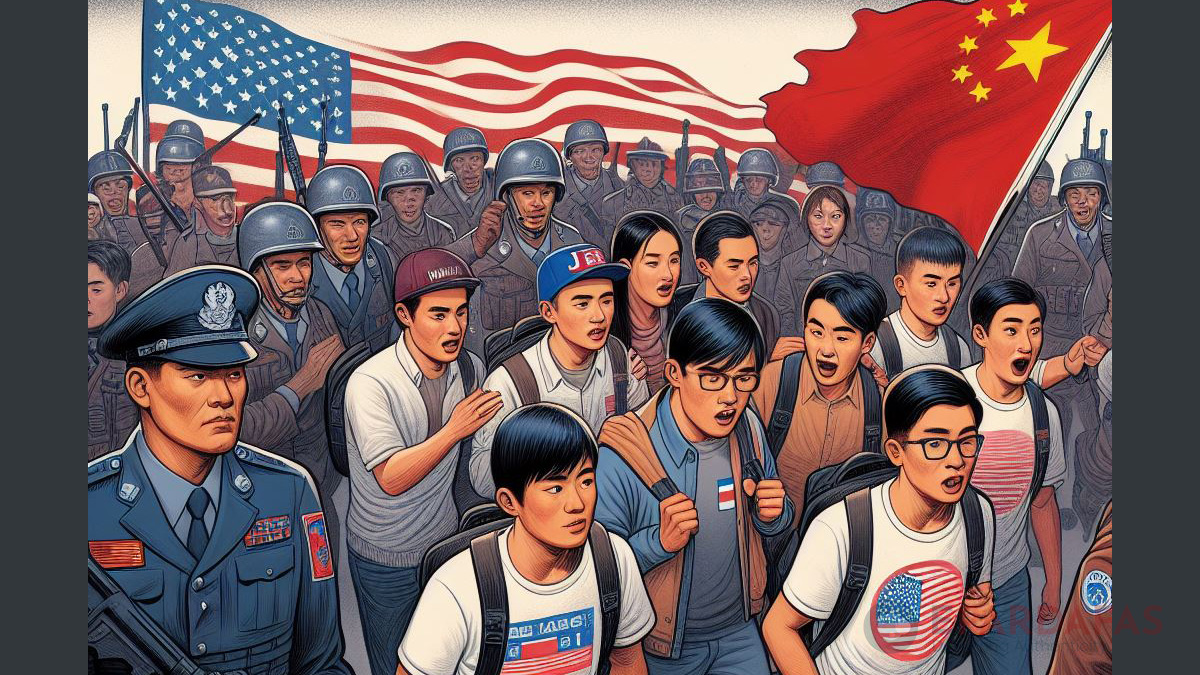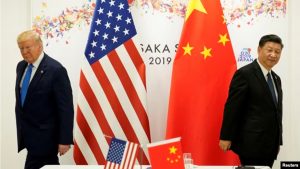
China’s Covert Agenda : Critiquing the CCP’s recruitment of American youth

In a concerning turn of events, at least five American student groups completed trips to Beijing in January, marking the initiation of Chinese leader Xi Jinping’s plan to invite 50,000 young Americans to China for exchange and study programs over the next five years.
Xi Jinping announced this plan during his visit to San Francisco last year, emphasizing the importance of enhancing China-U.S. youth friendship. The Chinese state media, Xinhua, reported Xi’s letter on January 4 to Sarah Lande, a U.S. resident from Iowa, outlining his vision for inviting 50,000 young Americans to China. This initiative gained further endorsement when Xi and his wife, Peng Liyuan, mentioned the programs in their response to a Chinese New Year greeting card from teachers and students at the U.S. Lincoln High School on January 10.
However, scholars in the U.S. are expressing concern that these exchange programs are serving a more sinister purpose, effectively turning American youths into unwitting agents of the CCP. In just one month, groups from various educational levels, including graduate students from Columbia, table-tennis players from Virginia, undergraduates from California State University-Long Beach, high-school students from Muscatine, Iowa, and even primary-school students from Utah, completed their visits. Critics argue that these trips, presented as study-abroad experiences, are primarily aimed at cultivating pro-CCP attitudes among young Americans.
The itineraries of these trips, as outlined in a commentary article by Jeanette Tong, Research Fellow at Citizen Power Initiatives for China, and Evan Osborne, an economist teaching at Wright State University, include routine exposure to ancient Chinese culture and cuisine, visits to modern metropolises, the Tesla factory, National Gene Bank, and large-scale construction projects. While presenting an illusion of rapid development and the superiority of the Communist social system, the itineraries conveniently omit mention of the darker aspects of the authoritarian state, such as extensive surveillance, concentration camps, religious and human rights suppression, environmental issues, and poverty among the majority population.
Read Also
The Quiet Invasion: How the CCP Infiltrates the US Through Academia
Through interactions with “host” Chinese students, American participants reportedly bonded quickly and were even encouraged to download the controversial Chinese social media app, WeChat. Some were allegedly invited to consider studying and working in China, suggesting a more insidious aim of influencing the future trajectory of these young minds.
The critics argue that the CCP’s ultimate goal is to create a generation of supporters who are ideologically aligned with Xi Jinping’s vision for global dominance. They warn that these programs aim to instill “red genes” in innocent American youths, turning them into unwitting tools for the CCP’s authoritarian model. The authors of the commentary emphasize the need for institutions organizing such trips to recognize that the destination is not merely China but “CCP China,” a place where one party controls all. They urge students to undergo pre-trip training that provides an American perspective on issues such as the deterioration of U.S.-China relations, the CCP’s motives behind sponsoring such trips, human rights concerns, and the security risks associated with platforms like WeChat.
“This strategy employs both financial incentives and sexual allurements to groom new agents for the CCP within African countries,” they wrote.
Presently, Xi’s plan to bring 50,000 American youths to “experience China” within five years aims to “start with the young,” seeking to identify and cultivate CCP agents in the United States.
They urged the American public to “remain extremely vigilant about this and not let the CCP’s deceit blind their children’s eyes and poison their hearts.”
They also said the CCP has been investing heavily in bringing numerous young students from African nations to China. These individuals are provided with generous living allowances, and Shandong University even goes so far as to assign three Chinese female university students to each African student as “study partners.” This shows that there is no law to which the CCP will not stoop to complete its nefarious goals.
In conclusion, as the CCP extends its influence through seemingly innocent exchange programs, it becomes crucial for American institutions and participants to remain vigilant and critically assess the true motives behind these initiatives. The values of democracy and freedom, cherished by America, are under a comprehensive CCP attack, and it is imperative to safeguard the integrity and independence of the younger generation from potential ideological manipulation.












Comments